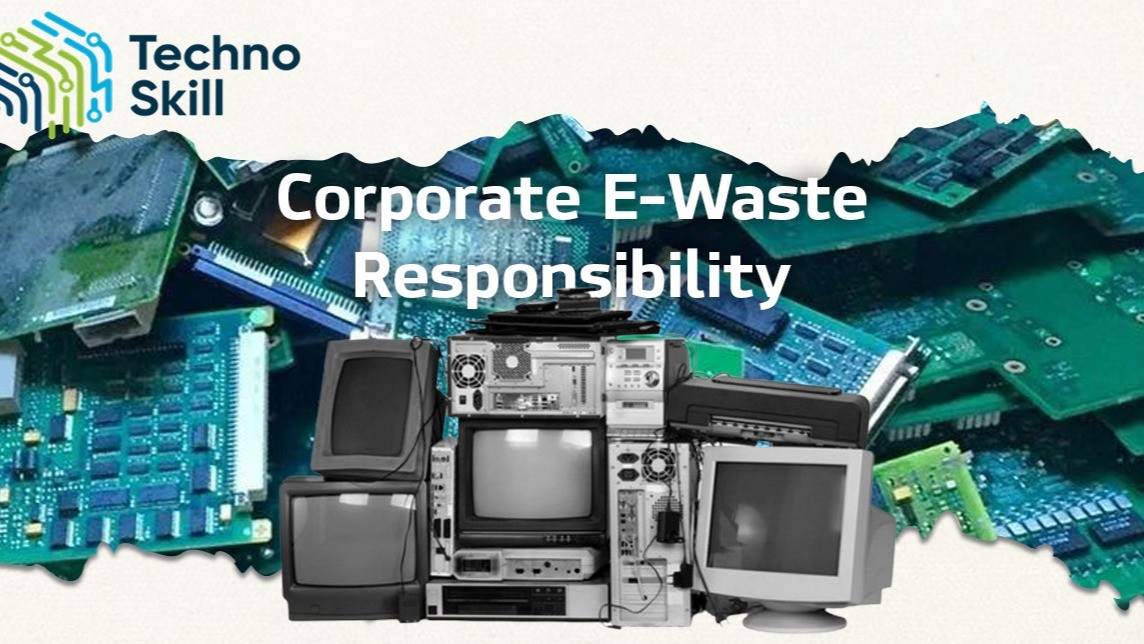Corporate E-Waste Responsibility: Why Businesses Must Take Action
In a world increasingly driven by technology, businesses rely heavily on electronic devices to stay competitive and efficient. From outdated computers and servers to obsolete manufacturing control panels, electronic waste (e-waste) is piling up at an alarming rate. While technological advancements push businesses forward, they also raise a critical concern—what happens to all the discarded electronics?
E-waste is not just an environmental issue; it’s a business responsibility. Companies that fail to manage their electronic waste sustainably contribute to pollution, resource depletion, and potential legal repercussions. On the other hand, businesses that take proactive steps toward responsible e-waste management gain a competitive edge, enhance their corporate image, and contribute to a circular economy.
Understanding the Impact of E-Waste
E-waste is one of the fastest-growing waste streams globally. The World Economic Forum estimates that over 50 million metric tons of e-waste are generated each year, with only about 20% being formally recycled. The remaining 80% ends up in landfills or is informally processed, often in ways that release toxic chemicals into the environment.
For businesses, this means that the improper disposal of electronic devices can lead to significant environmental and reputational consequences. Toxic materials such as lead, mercury, and cadmium found in e-waste can contaminate soil and water, leading to long-term ecological damage. Additionally, valuable materials like gold, silver, and rare earth metals go to waste when electronics are not properly recycled.
The Business Case for Sustainable E-Waste Management
Adopting responsible e-waste management is not just about corporate social responsibility—it’s a strategic business move. Here’s why:
- Regulatory Compliance – Governments worldwide are tightening regulations around e-waste disposal. Businesses that fail to comply with these regulations risk fines and legal action. By implementing sustainable disposal practices, companies can ensure compliance and avoid costly penalties.
- Brand Reputation and Customer Trust – Consumers and business partners are increasingly favoring environmentally responsible brands. Companies that demonstrate a commitment to sustainability build stronger relationships with their customers and stakeholders, fostering loyalty and trust.
- Cost Savings and Resource Recovery – Recycling and refurbishing electronic devices can lead to cost savings. Many components in outdated electronics can be reused, reducing the need to purchase new materials. Additionally, responsible disposal can sometimes generate revenue through recycling programs.
- Data Security and Risk Management – Improper disposal of electronic devices can lead to data breaches. Ensuring that e-waste is securely processed, wiped, or destroyed prevents sensitive corporate information from falling into the wrong hands.
Implementing a Sustainable E-Waste Management Strategy
Taking action on e-waste requires more than just occasional recycling—it demands a structured approach. Businesses can implement an effective strategy with the following steps:
- Conduct an E-Waste Audit
- Partner with Certified E-Waste Recyclers
- Extend the Lifecycle of Electronics
- Educate Employees on E-Waste Responsibility
- Explore Circular Economy Initiatives
The Future of E-Waste Management in Business
Sustainable e-waste management is not just a trend—it’s becoming a business necessity. As global awareness of environmental impact grows, stakeholders, including investors, clients, and regulatory bodies, expect companies to take responsibility for their electronic waste. Businesses that proactively manage e-waste will not only meet these expectations but also position themselves as industry leaders in sustainability.
Taking action now ensures that businesses stay ahead of regulations, protect the environment, and build stronger brand equity. The choice is clear—corporations must step up and make e-waste responsibility a core part of their sustainability strategy.myred environment.

